In this article:
Food allergies are rather common all around the world. As many as 15 million Americans have food allergies, according to data by Food Allergy Research & Education (FARE).
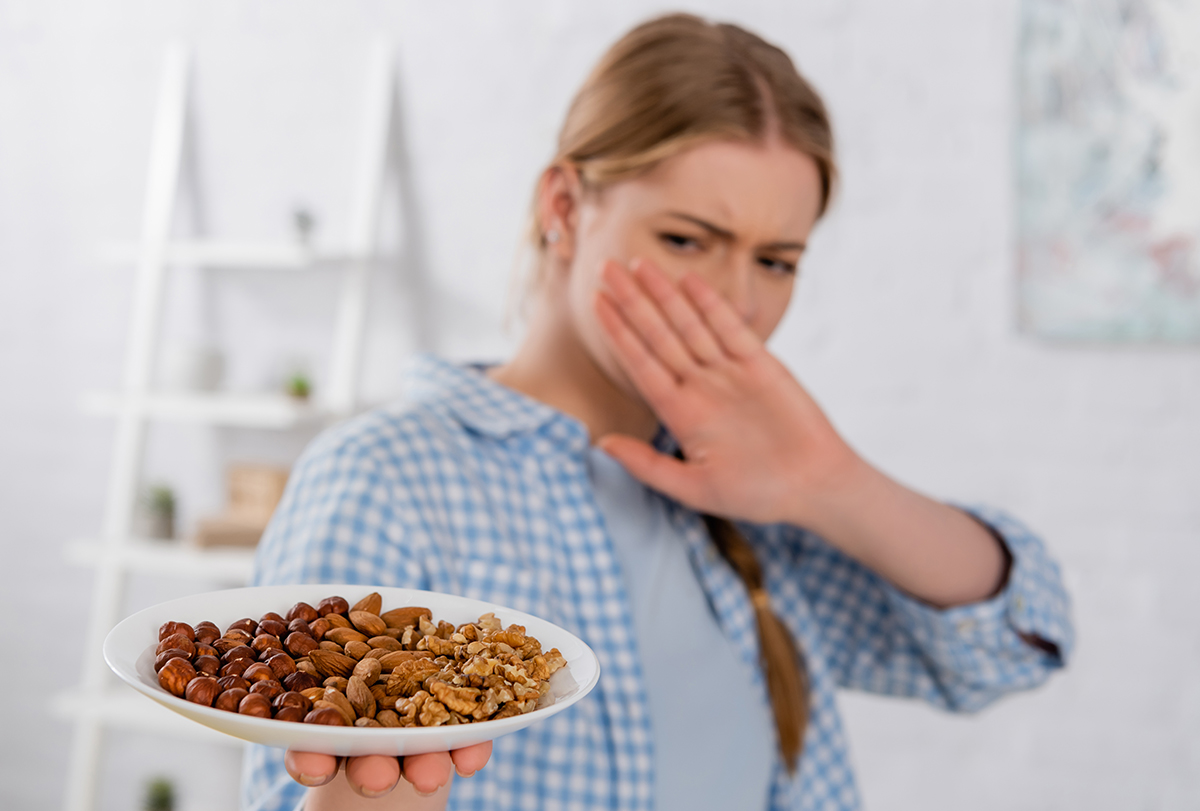
The scary part is that the number is rising – more and more children every day are affected by food allergies. There has been an increase in food allergies in children by over 50% in around a decade, from 1997 to 2011 alone. Now, one in every 13 kids has one food allergy. (1)
A rash is usually the first sign that occurs if you have an allergic reaction to a food item. This rash develops very quickly, sometimes only after coming in contact with the food, that is, before even eating it!
This huge prevalence of food allergies is very alarming, also because of the potentially harmful effects they have.
Treating Food Allergies at Home
The list of home remedies for food allergies is short but is very useful as it comes in handy in settling the discomfort that may arise from allergic reactions. However, immediate medical attention should be sought for emergency cases.
Here are some home remedies for food allergies:
1. Chew ginger
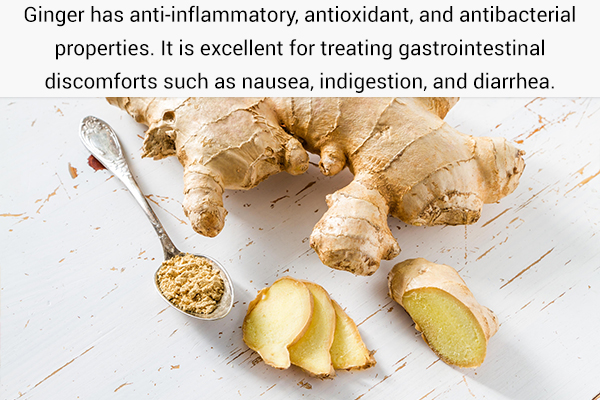
The most sought-after remedy for fighting food allergies is ginger.
Ginger has been scientifically proven to have medicinal benefits. It is anti-inflammatory, antioxidant, and antibacterial and treats gastrointestinal discomforts such as nausea, indigestion, and diarrhea.
To reap its benefits, chew ginger daily, add it to your cup of tea and have it twice or thrice every day, or consume 2–3 cups of ginger tea daily for a few days.
2. Consume a cup of fresh yogurt
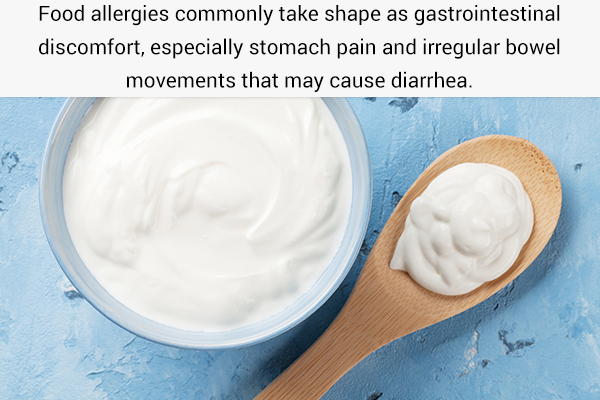
Food allergies commonly take shape as gastrointestinal discomfort, especially stomach pain and irregular bowel movements that may cause diarrhea.
To overcome any such problems, consume a cup of fresh yogurt every day. Yogurt is famous for its effects on gut microbiota. It promotes the growth of good bacteria and thus helps treat digestive issues. (2)
3. Incorporate vitamin C-rich foods into your diet
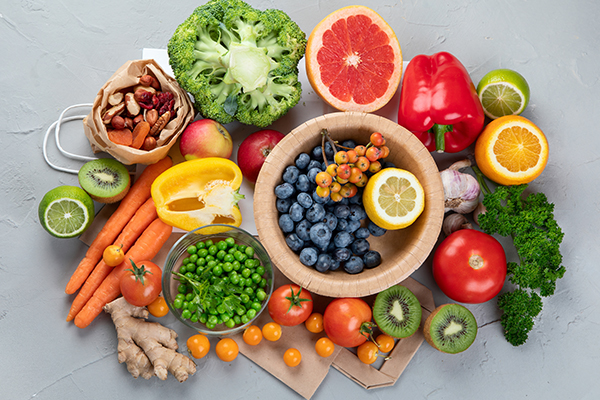
It is no secret that vitamin C is immensely helpful in removing toxins that accumulate in the body. This action of vitamin C makes it a great at-home remedy for fighting food allergies. (3)
Incorporate more vitamin C-rich foods in your diet such as kiwi, strawberries, oranges, and broccoli.
4. Drink green tea
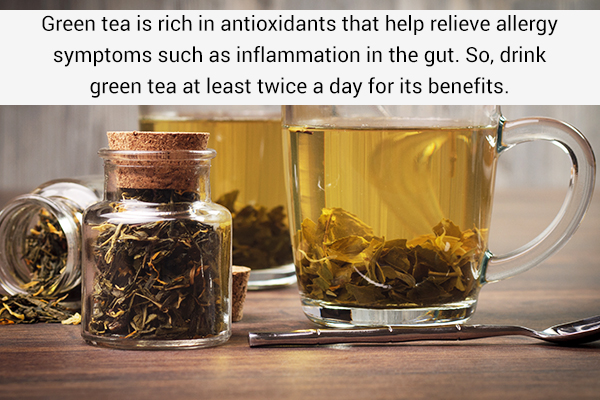
Flavonifractor plautii is one of the good bacteria in the gut that suppresses the immune reaction that causes the food allergy response.
Studies have revealed that green tea increases the number of these bacteria in the gut by supporting its growth, thereby inhibiting food allergies. (4)
Not only this, but green tea is rich in antioxidants that help relieve allergy symptoms such as inflammation in the gut. So, drink green tea at least twice a day for its benefits.
5. The light of lemon
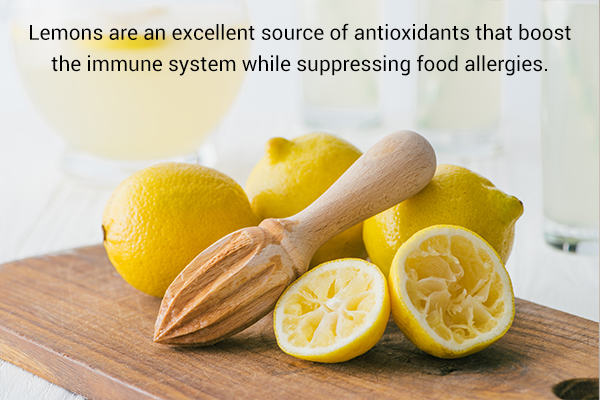
Lemons are a loaded source of antioxidants. It is already established that antioxidants have an important role in combatting food allergies; lemons are an excellent source of antioxidants that boost the immune system while suppressing food allergies. (3)
All you have to do is add 1 teaspoon of lemon juice or cut half a lemon, add it to a glass of warm water, and have it every morning on an empty stomach. You will notice the wonders this small habit will do for you in around 2 weeks.
6. Drink turmeric milk

Turmeric is a famous spice known for its anti-inflammatory properties. It contains a chemical called curcumin, which is its active component. (5) It successfully alleviates any symptoms associated with allergies, from gastric discomfort to nasal congestion.
The best way to have it is by adding 1 tablespoon of turmeric powder to warm milk and having this mixture twice daily. You can also add honey for a little taste.
Common Symptoms of Food Allergies
The rash that is associated with an allergic reaction to food is not only limited to your mouth region but can extend to your neck and entire face or wherever the food item has come in contact with your skin. (6)
This means that experiencing a rash on any part of the body is also possible. So, if after eating something you experience a rash on skin other than that of the face, don’t rule out the possibility of being allergic to it.
Overall, age doesn’t have a great impact on food allergy symptoms as they are common in both kids and adults. (6) The best way to differentiate a rash from a food allergy to something else is the presence of other common symptoms associated with food allergies, such as:
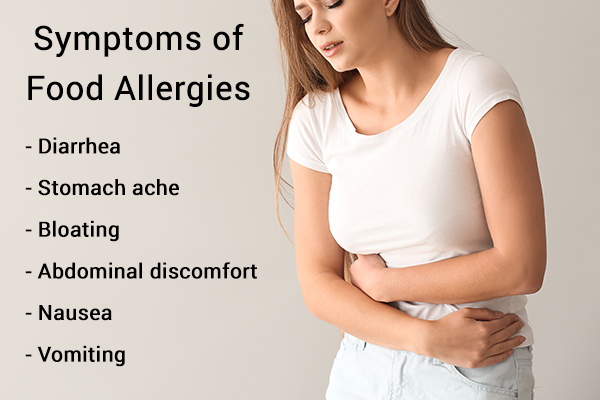
- Diarrhea
- Stomach ache
- Bloating
- Abdominal discomfort
- Nausea
- Vomiting
How Are Food Allergies Diagnosed?
Food allergies are often detected accidentally when children experience an allergic or an adverse reaction after eating a particular food. So, many people become aware of their food allergies at an early stage and stay cautious of what they eat for the rest of their life.
If during childhood, a child doesn’t get in contact with the food they are allergic to, then blood or skin tests can help diagnose food allergies. (7)
The good news is that many children outgrow their food allergies, meaning they develop tolerance, such as in the case of eggs, milk, or wheat allergies. However, those who are allergic to tree nuts, fish, and shellfish may have lifelong allergies, which may be mild. (8)
Sometimes, you can develop an allergy to the food you have eaten all your life later as an adult, though this is less common. (8)
Resolving Food Allergies

Food allergies are also popularly associated with skin rashes along and digestive discomfort. These rashes eventually improve and completely go away once the allergic reaction stops.
Food allergy symptoms only occur when your immune system takes over and decides to start an immune reaction that leads to an allergy attack.
The time it takes for the allergic reaction to start and resolve also depends on the type of food you’re allergic to and the amount you ingest. Some allergic reactions take hours to occur and resolve, while other cases can develop within a few minutes. (9)(10)
You have to wait for your immune system to calm down for your symptoms to subside completely. If you experience only the minor symptoms of food allergies, you can alleviate them by taking:
- Antihistamines
- Topical anti-allergy agents
- Rash creams
Sometimes, you may experience a second round of food allergy symptoms hours after the first allergic event, although this is very rare.
How to Prevent Food Allergies?
A new study has shown that early introduction of potential allergens to the diet of the infant may help in future allergy prevention. (11)
The only way to avoid and prevent an allergic reaction is to avoid the allergen, that is, the food you’re allergic to entirely. Sometimes, you may forget it entirely and eat an allergen. So, it’s also important for you to be prepared in case of a reaction.
Before consuming outside or packaged food, make sure you go through the label and double-check the ingredients. Inform people at home, school, office, or those around you about your allergies so that they are prepared to help in case of emergencies.
When to See a Doctor
If your food allergy rash has become infected or you experience severe symptoms and signs such as inflammation, pain, discharge, or an increase in the size of the rash, you should go see a doctor immediately.
An allergist is someone you can consult to identify the allergen causing the reaction. They will be able to diagnose your food allergies and rule out food sensitivities or other plausible causes.
Most-Asked Questions About Food Allergies
What can worsen a food allergy attack?
Various factors can intensify your reaction to food. People who are asthmatic or frequent drinkers may experience more pronounced symptoms of food allergies.
The amount of food eaten and its form (solid/liquid) can also have an impact on the allergic reaction. It has also been found that if a woman is menstruating, her food allergies may be worsened. (12)
What is the difference between food allergy and intolerance?
Food allergy, as the name suggests, is an allergic response to a certain type of food that occurs due to the activation of the immune system and causes inflammation. Its symptoms can be life-threatening at times.
Food intolerance, on the other hand, is the body’s inability to metabolize or digest a certain type of food due to a lack of enzymes or other factors. It produces uncomfortable gastric symptoms but they aren’t generally life-threatening. (13)
How much allergen will cause a food allergy reaction?
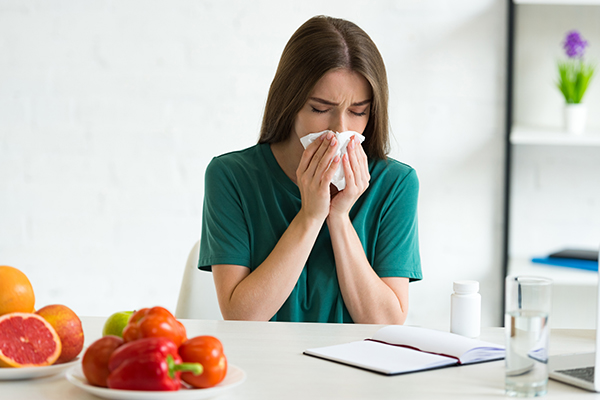
The amount of allergen to trigger an immune response in an allergic person differs from person to person. In some people, even a small or trace amount of allergen can cause an allergic reaction, whereas others may require a slightly bigger bite.
Can people be allergic to meat?
Although meat allergies are rare and hardly seen, they do exist. Out of all types of meat, allergies to chicken and beef are the most common.
Can a person outgrow food allergies?
Various food allergies including allergies to milk or eggs are usually outgrown by children as they grow. Nut allergies or crustacean allergies, on the other hand, tend to stay for life.
What are cross-reaction allergies?
Food allergies also open the gate to the possibility of what is known as a cross-reaction. In simpler terms, if you’re allergic to a food item like a fruit, you can be allergic to various members of that fruit family, such as melons and ragweed. (14)
A commonly registered case of cross-reactive food allergy is latex and fruits such as bananas, kiwi, and avocado. So, if you’re aware of being allergic to a particular fruit or vegetable, make sure you get checked for other members of that family to avoid future allergic reactions.
Final Word
Mild food allergies that cause manageable reactions can be taken care of at home by yourself.
Remedies such as those listed above are a great path to dealing with food allergy and its symptoms. However, if you suspect or experience moderate to severe food allergies, you must escalate the same to a doctor to ensure timely interventions.
As mentioned earlier, there’s no scientific cure for allergies, so it is best to take the necessary precautions and active steps to prevent them. You can do so by being cautious of what you eat.
- Was this article helpful?
- YES, THANKS!NOT REALLY


